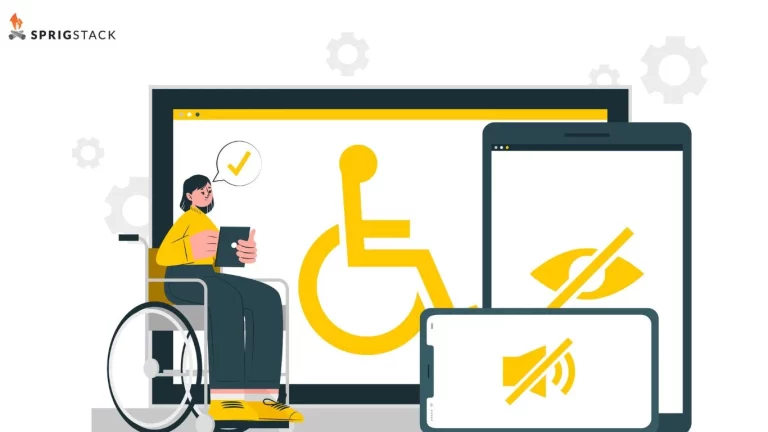In recent years, hypnotherapy has gained recognition as an effective therapeutic modality for addressing issues such as anxiety, stress, phobias, and behavioral change. Historically practiced in clinical settings through one-on-one sessions, hypnotherapy is now experiencing a breakthrough as it adapts to the digital era. The process of integrating hypnotherapy into digital platforms is revolutionizing how practitioners reach clients and how individuals access mental health support. This transformation is driven by the rise of digital health solutions and teletherapy, making mental health care more accessible, affordable, and versatile than ever before.
This comprehensive article explores the multifaceted approach to integrating hypnotherapy into digital platforms, examining technological advancements, key components for success, challenges faced, and future perspectives. Whether you’re a practitioner looking to expand your practice or a tech developer interested in mental health solutions, understanding these dynamics is essential for thriving in the digital health landscape.
The Evolution of Hypnotherapy in the Digital Age
Historical Context of Hypnotherapy
Traditional hypnotherapy has deep roots, dating back to the 18th century with pioneers like Franz Mesmer, who introduced concepts of animal magnetism. Over time, hypnotherapy evolved into a structured, evidence-based practice utilized by psychologists, counselors, and medical professionals. However, its adoption was often limited by geographical and logistical barriers, requiring clients to attend in-person sessions.
Transition from Traditional to Digital Formats
With advancements in internet technology and mobile devices, hypnotherapy began to shift from solely face-to-face interactions to digital formats. This transition allowed practitioners to develop remote sessions through video conferencing and create online resources that clients could access anytime, anywhere. The COVID-19 pandemic accelerated this shift, demonstrating the profound potential of digital health solutions in mental wellness.
Current Trends in Digital Mental Health Services
Today, digital hypnotherapy is a subset of a broader digital mental health ecosystem that includes apps, teletherapy platforms, and immersive technologies like virtual reality (VR). The focus is on providing scalable, user-friendly interventions that can be personalized to individual needs, often leveraging AI-driven algorithms for better engagement and outcomes.
Benefits of Digital Hypnotherapy
| Benefit | Description |
|---|---|
| Accessibility | Clients in remote or underserved areas can access hypnotherapy easily. |
| Cost-Effectiveness | Reduced travel and session costs make therapy more affordable. |
| Convenience | Sessions can be scheduled flexibly, fitting into busy lifestyles. |
| Engagement | Interactive digital tools can enhance client involvement and adherence. |
| Data Collection | Digital platforms enable real-time tracking and progress monitoring. |
Types of Digital Platforms for Hypnotherapy
A. Mobile Applications
Features and Benefits
Mobile apps for hypnotherapy typically include guided relaxation sessions, customizable scripts, ambient sounds, and progress tracking features. These apps empower users to practice self-hypnosis in the comfort of their homes and monitor their journey over time.
Examples of Popular Hypnotherapy Apps
- The Hypnotherapy App by MindEase
- Relax & Sleep Hypnosis by Sleep Shield
- Hypnotherapy for Stress by Mindfulness Apps
B. Telehealth and Video Conferencing
Real-Time Remote Hypnotherapy
Platforms like Zoom, Doxy.me, and specialized teletherapy platforms enable practitioners to conduct live hypnotherapy sessions remotely, maintaining the interactive and personalized elements of in-person therapy.
Platforms Specializing in Mental Health
Dedicated mental health platforms such as BetterHelp or Talkspace often integrate hypnotherapy into broader treatment plans, ensuring seamless care delivery.
C. Virtual Reality (VR)
Immersive Hypnotic Experiences
VR technology creates immersive environments that can deepen trance states, making hypnotherapy sessions more engaging. For example, users can explore calming landscapes or guided visualizations in a fully immersive way.
Potential for Enhanced Engagement
The multisensory experience enhances client focus and can be particularly effective for exposure therapy and relaxation techniques.
D. Online Courses and Pre-recorded Content
Self-Paced Programs
Many practitioners offer comprehensive online courses, allowing users to learn and practice hypnotherapeutic techniques at their own pace. These are valuable for ongoing personal development or supplementing live therapy.
Accessibility Benefits
Pre-recorded content reduces barriers such as scheduling conflicts, making hypnotherapy accessible to a wide audience.
Key Components of Effective Digital Hypnotherapy Integration
A. User Experience (UX) and Accessibility
Intuitive Interfaces
Designing user-friendly platforms ensures individuals of all ages and technical skills can navigate and benefit from digital hypnotherapy tools.
Adaptation for Diverse Populations
Customizing content for different languages, cultural backgrounds, and disabilities increases reach and effectiveness.
B. Content Quality and Safety
Evidence-Based Scripts and Techniques
It is crucial that digital hypnotherapy content is grounded in scientific research and adheres to best practices to ensure safety and efficacy.
Ensuring User Safety and Contraindications
Clear guidelines should be provided to avoid sessions with individuals who have certain mental health conditions that require in-person treatment or medical supervision.
C. Data Security and Privacy
Compliance with Regulations
Platforms must adhere to standards like HIPAA and GDPR to protect user data and privacy.
Secure Data Storage
Implementing encryption and secure servers is vital to maintain user confidentiality and build trust.
D. Personalization and Adaptability
Tailoring Scripts to Individual Needs
Customizing hypnotherapy scripts based on user input or progress can enhance effectiveness.
AI-Driven Personalization
Using artificial intelligence to analyze user data and adapt sessions dynamically is an emerging trend that enhances engagement and outcomes.
Challenges and Considerations
Regulatory and Legal Issues
Differences in legal frameworks across regions can complicate digital hypnotherapy practice. Practitioners need to stay informed about licensing, scope of practice, and malpractice coverage.
Effectiveness Validation and Clinical Evidence
While promising, digital hypnotherapy must be supported by rigorous clinical trials to establish its efficacy and build credibility.
Ethical Considerations
Maintaining client confidentiality, obtaining informed consent, and avoiding harm are paramount in digital settings.
Limitations of Digital Hypnotherapy
Some individuals may require in-person therapy due to the severity of their condition or personal preference, highlighting the need for hybrid models.
Bridging the Digital Divide
Efforts should be made to reach populations with limited internet access, language barriers, or low technological literacy to ensure equitable health care.
Benefits of Integrating Hypnotherapy Into Digital Platforms
Accessibility and Convenience
Digital platforms remove geographical and time barriers, facilitating easier access to hypnotherapy services.
Cost-Effectiveness
Reduced overhead costs translate into lower prices for consumers and increased scalability for providers.
Enhanced Engagement and Adherence
Interactive features, reminders, and progress feedback encourage users to stay committed to their hypnotherapy routines.
Data Collection for Continuous Improvement
Analytics help practitioners refine content, personalize sessions, and measure outcomes effectively.
Scalability for Mental Health Support
Online hypnotherapy can support large populations, especially in regions with limited mental health resources.
Case Studies and Examples
Successful Digital Hypnotherapy Programs
One notable example is the development of immersive VR hypnotherapy for anxiety reduction, which has shown promising results in small clinical trials. Several apps have demonstrated significant improvements in sleep quality and stress management.
Patient Testimonials
Many users report increased relaxation, decreased symptoms of anxiety, and improved overall well-being after consistent use of digital hypnotherapy tools.
Research Demonstrating Efficacy
Multiple studies published in journals like the Journal of Clinical Psychology support the effectiveness of digital hypnotherapy, especially when combined with other digital mental health interventions.
Future Perspectives on Integrating Hypnotherapy Into Digital Ecosystems
Emerging Technologies
Artificial intelligence, augmented reality (AR), and machine learning will likely play larger roles in creating adaptive, personalized hypnotherapy experiences.
Integration with Broader Mental Health Ecosystems
Combining hypnotherapy with cognitive behavioral therapy (CBT) and other modalities through integrated digital platforms offers comprehensive mental health support.
Potential for Personalized, Adaptive Hypnotherapy
Future systems may automatically adjust scripts and techniques based on real-time data and user feedback, enhancing effectiveness.
Research and Development Opportunities
As digital tools evolve, ongoing research is essential to establish best practices, efficacy benchmarks, and new application areas such as stress management for workplaces.
Practical Steps for Practitioners and Developers
Adapting Practice for Digital Delivery
Hypnotherapists should familiarize themselves with digital tools, ethically adapt their scripts, and ensure a secure virtual environment.
Collaborating With Tech Developers
Partnerships between mental health professionals and software developers can lead to innovative, evidence-based digital hypnotherapy solutions.
Ensuring Quality and Ethical Standards
Regular training, adherence to clinical guidelines, and ongoing evaluation are critical to maintaining high standards.
Marketing and Outreach Strategies
Using online marketing, social media, and professional networks, practitioners can reach a broader audience interested in integrating hypnotherapy into digital solutions.
Conclusion
As the digital landscape continues to evolve, integrating hypnotherapy into digital platforms represents a promising frontier for mental health care. It offers unprecedented opportunities for increased accessibility, personalization, and scalability. Embracing these innovations requires careful attention to safety, efficacy, and ethics, but the potential benefits for clients and practitioners alike are immense. The future of hypnotherapy lies in the seamless integration of traditional techniques with cutting-edge technology, opening new horizons for mental well-being worldwide.
FAQs
- Is digital hypnotherapy as effective as in-person sessions?
Research indicates that digital hypnotherapy can be effective, especially with well-designed content and appropriate client selection. However, some conditions may still benefit from face-to-face intervention. - What safeguards should be in place for digital hypnotherapy?
Practitioners must ensure data security, obtain informed consent, provide clear guidelines about contraindications, and maintain professional standards. - Can I use hypnotherapy apps without supervision?
Yes, for general relaxation and stress reduction, self-guided apps can be beneficial. For clinical issues, consultation with a qualified practitioner is recommended. - What are the main challenges of integrating hypnotherapy into digital platforms?
Legal issues, establishing efficacy, ensuring safety, reaching underserved populations, and maintaining ethical standards are key challenges. - Are there any risks associated with digital hypnotherapy?
Risks include misuse, ineffective treatment, privacy breaches, and delay in seeking appropriate medical care for severe conditions. - How can practitioners ensure quality in digital hypnotherapy offerings?
By using evidence-based scripts, securing client data, obtaining proper licensing, and continuously updating content based on research. - What emerging technologies will influence the future of digital hypnotherapy?
Artificial intelligence, augmented reality, virtual reality, and machine learning are poised to enhance personalized, immersive therapies. - How does personalization improve digital hypnotherapy?
Personalization tailors scripts and techniques to individual needs, improving engagement and treatment outcomes. - Can digital hypnotherapy be integrated with other digital mental health solutions?
Absolutely; combining hypnotherapy with CBT, mindfulness apps, and digital monitoring tools creates a comprehensive mental health ecosystem.


